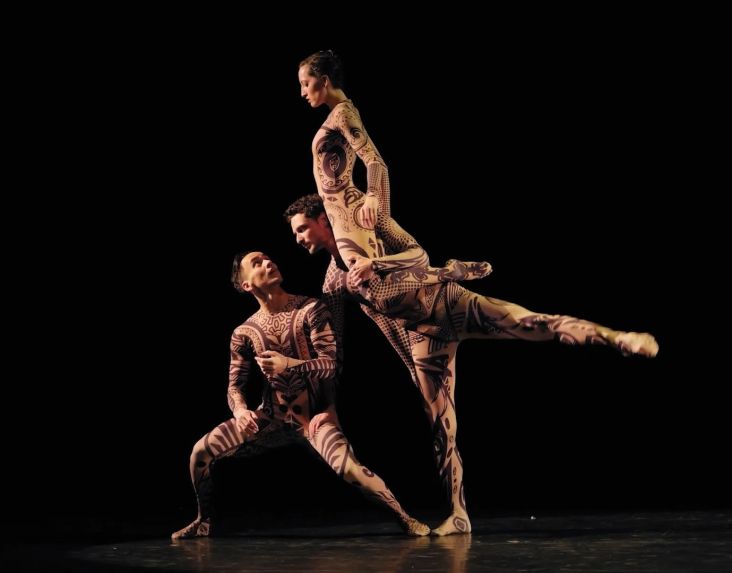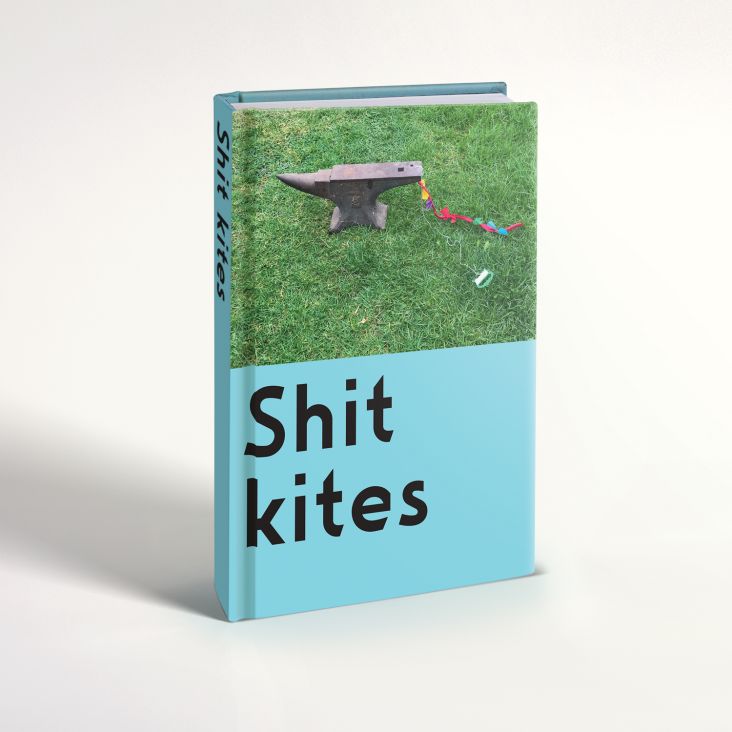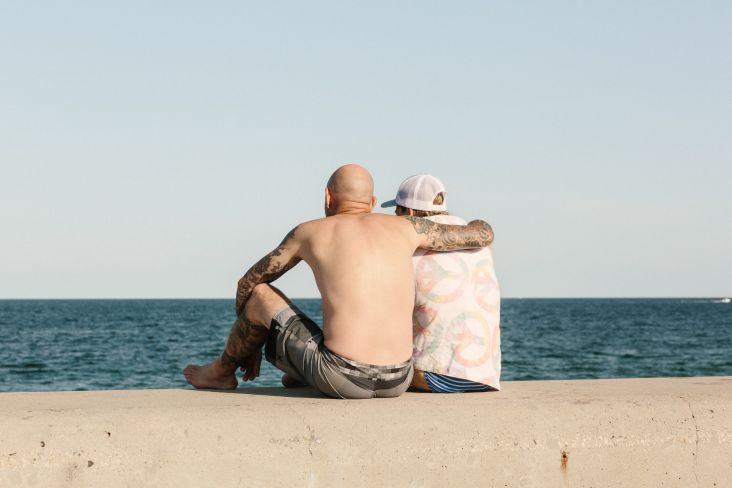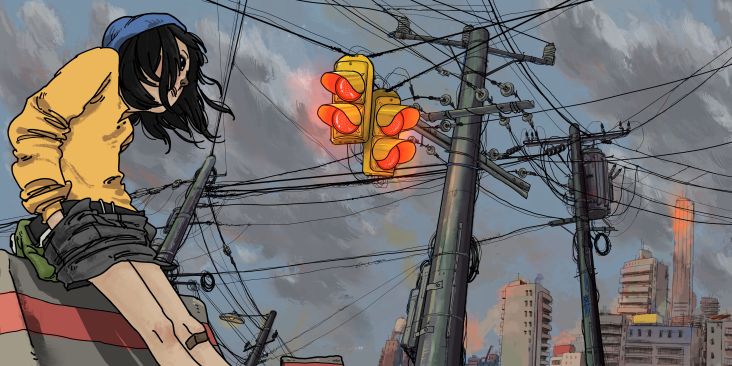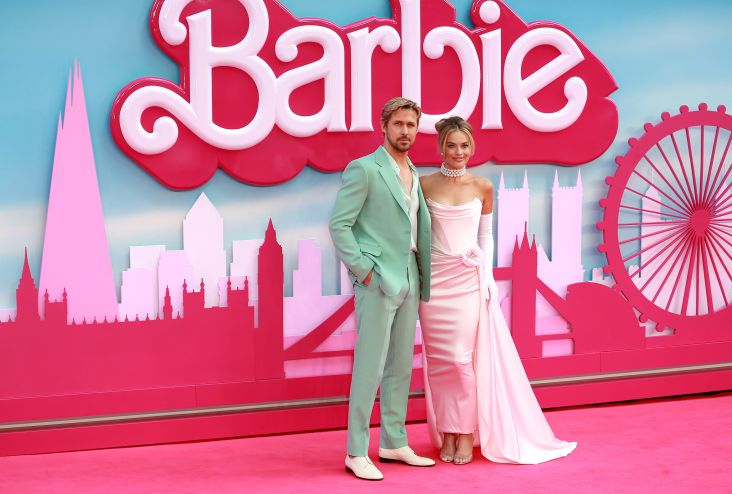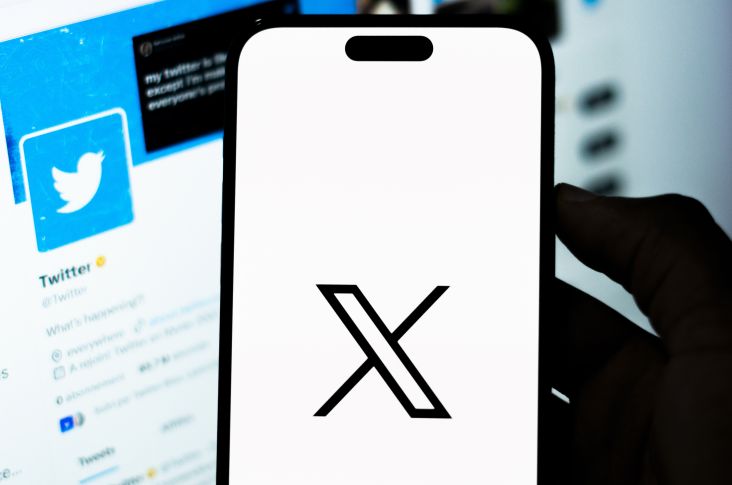Dirt Baby: Practice on why it's created a fake brand for people who treat their plants like pets
We all know the benefit of side projects. But what happens when a respected design studio lets loose and says no idea is too ridiculous? A new brand for 'plant parents', that's what. An entirely fictional company dedicated to people who want to take their greenery with them. We chat with Michelle Mattar of Practice to learn more.
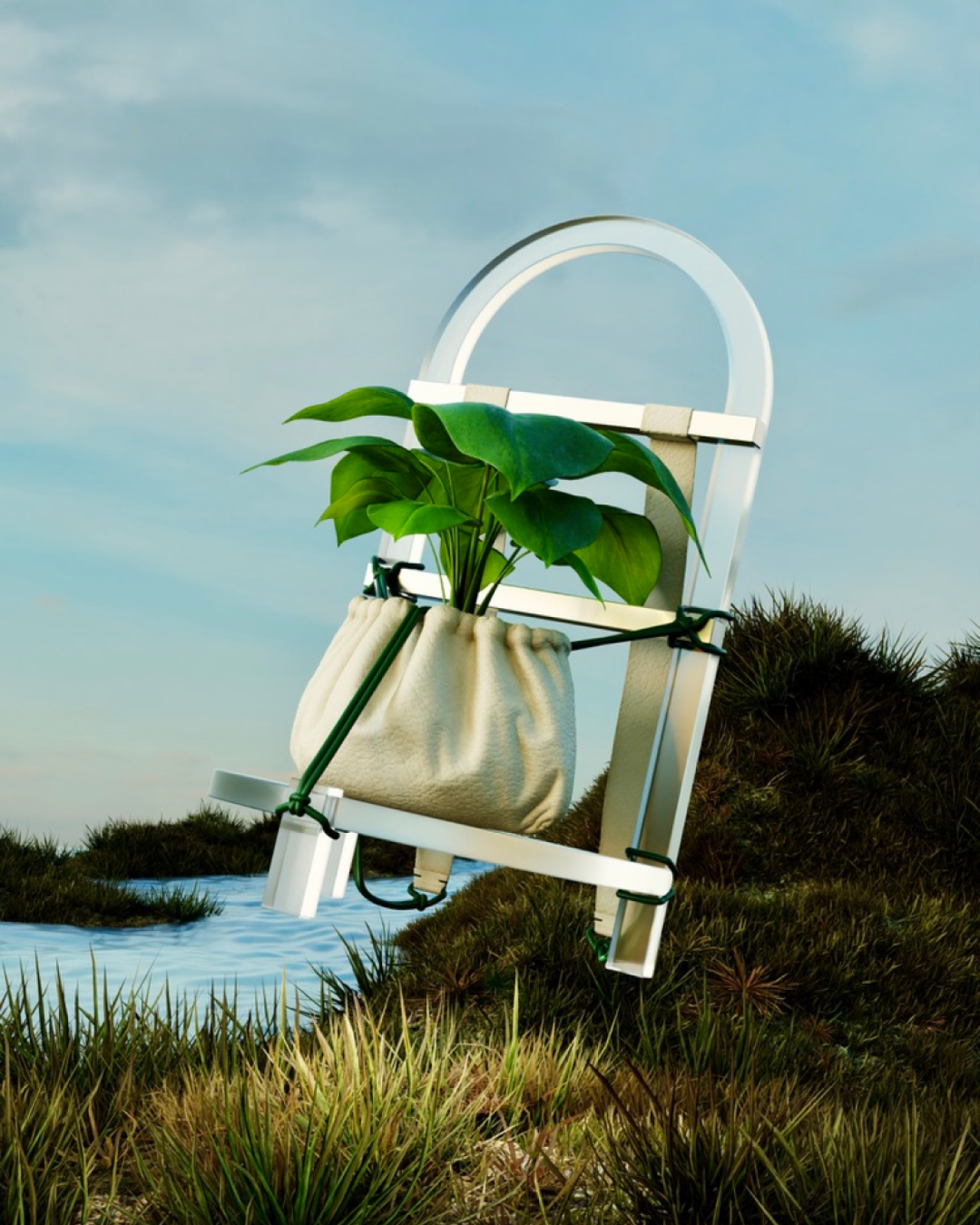
Dirt Baby is plucked from the imagination of Practice, a brand development firm based in New York City and headed up by Michelle Mattar. A theoretical brand inspired by the idea of treating plants as pets. "It was an experiment to see what happened when we took the constraints of client work off of our creative process and just worked on something the whole team felt passionately about," she tells Creative Boom.
As such, the team named the process Just For Practice and claims Dirt Baby is the first of many "fake brands" to help them refine their wider approach. But as time is money, the studio gave itself limited time to develop an idea.
"We spent the next week's session chatting about hypothetical companies and aligning on a shared vision of what to make," Practice explains. "We decided to go ahead with a backpack designed to hold the wearer's favourite houseplant, although the idea of designing a theme park for stoners also generated much interest."
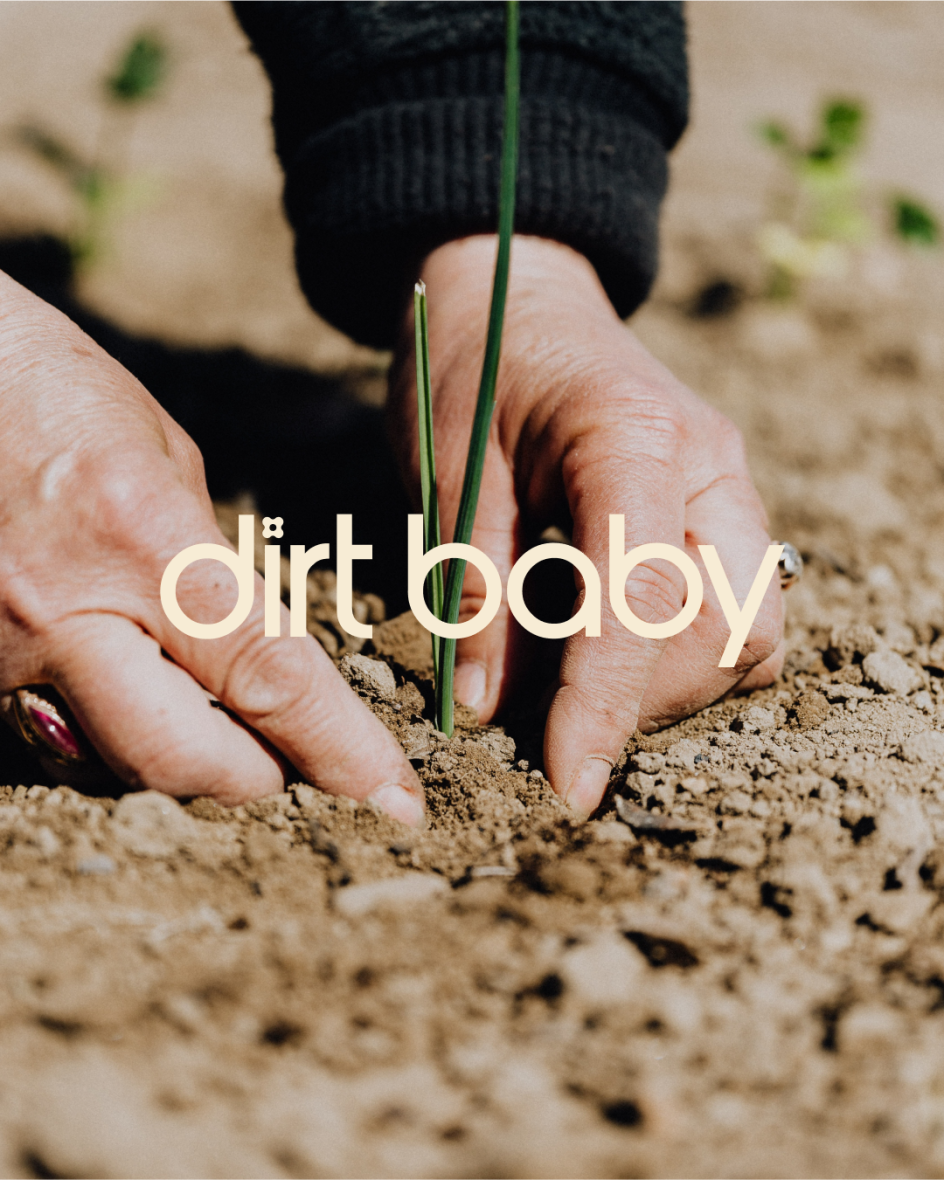
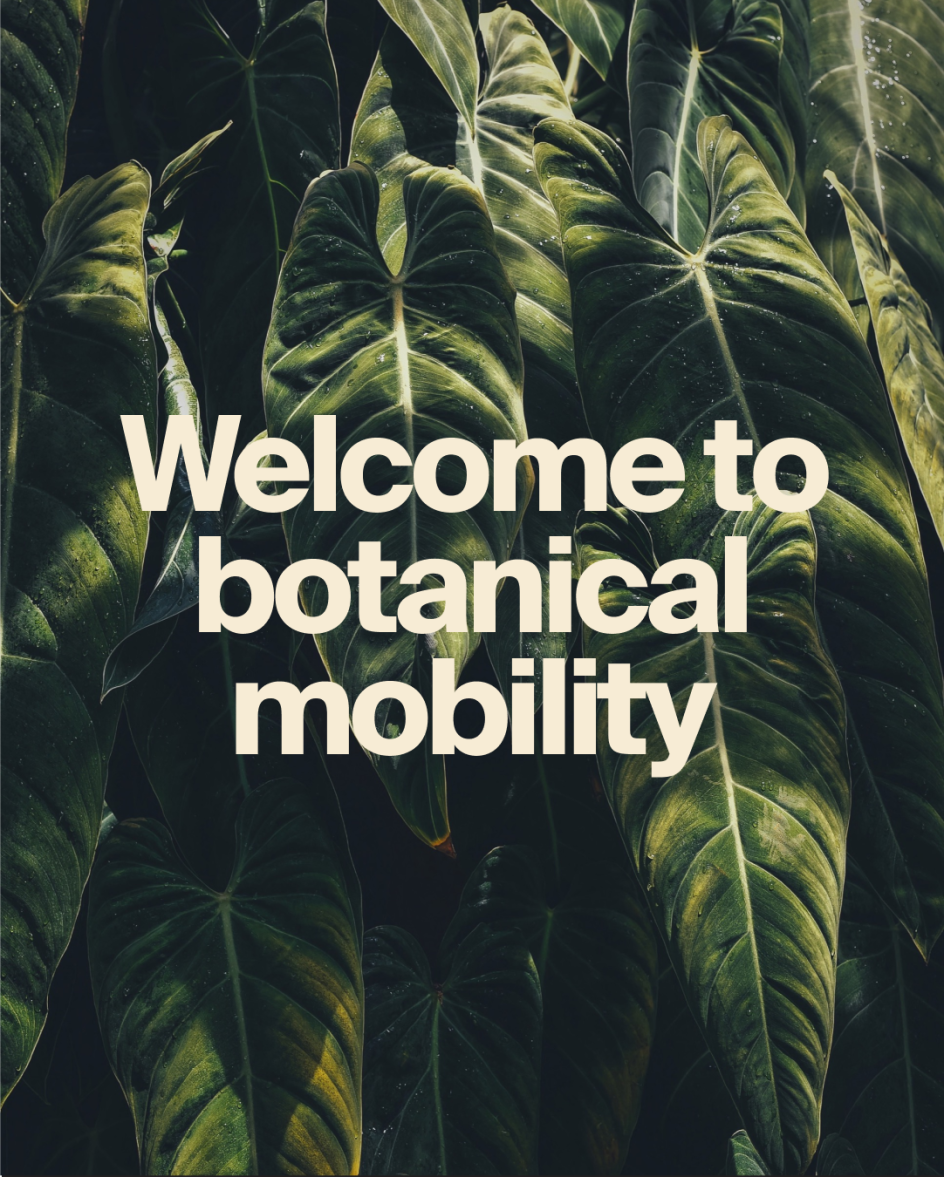
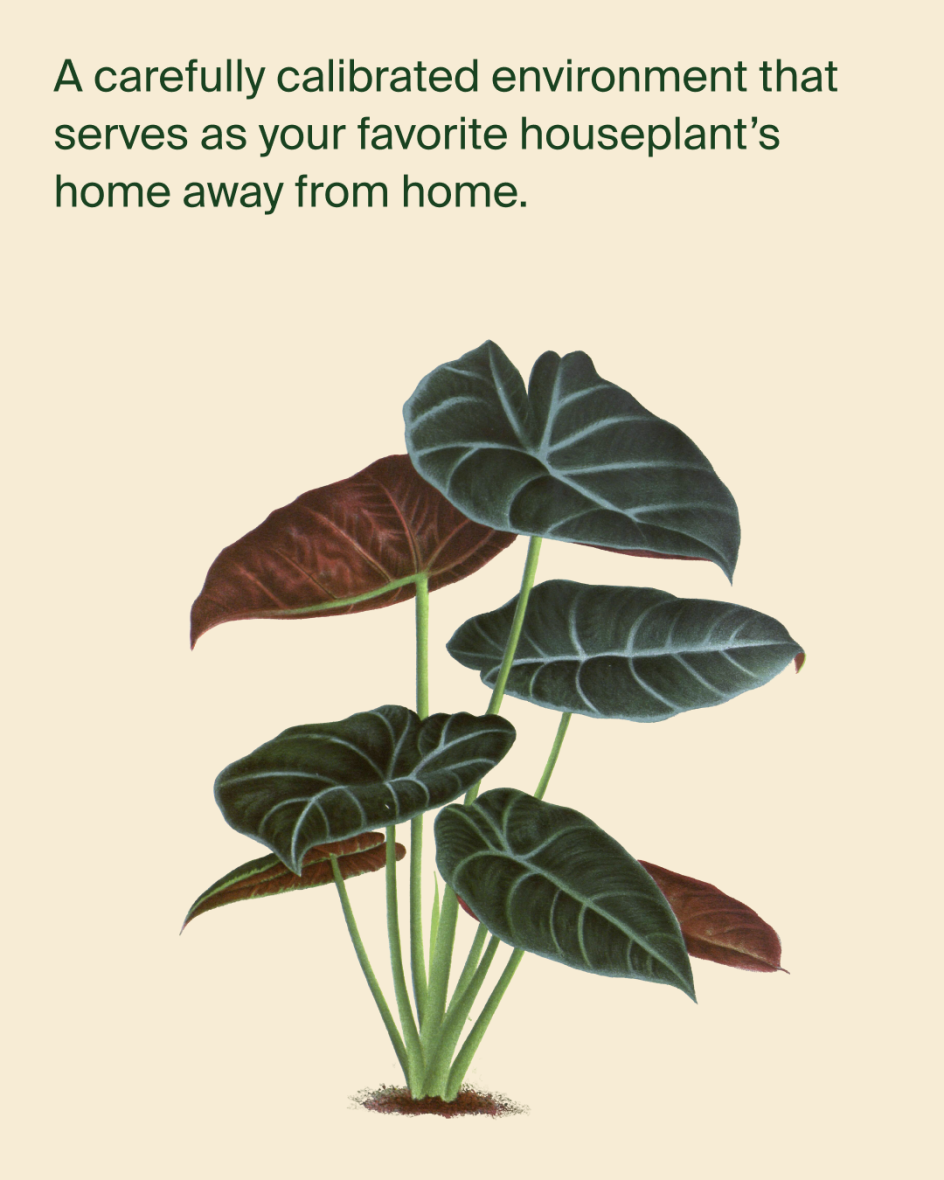
With a product concept in mind, Practice considered the target consumer and market insight, claiming that "pets are the new children, and plants are the new pets or 'what if plant daddy, but too much' – and turned everything up to 11". A further workshop resulted in Dirt Baby as the product's name, a play on 'fur baby' that "fit perfectly with the brand's core insight". Next came the visual identity, which went through several iterations before the team was happy with the result.
"We knew Dirt Baby wouldn't feel right without the emotional weight of 'Tiny Grass is Dreaming', so we toned down the upbeat, playful vibe we'd been pursuing and kept moving forward. No need to sell the idea beyond the team. Just the work. This emotionally-charged framework played out perfectly in the project's final output."
Finally, given Practice had spent thousands of billable hours on the passion project, they felt it was important to release more than mocked-up ads and packaging. Their solution was a more experiential embodiment of the brand: Dirt Baby Radio, "an extensive collection of music for plants and the people who love them". They also made merch, which wasn't part of the original plan.
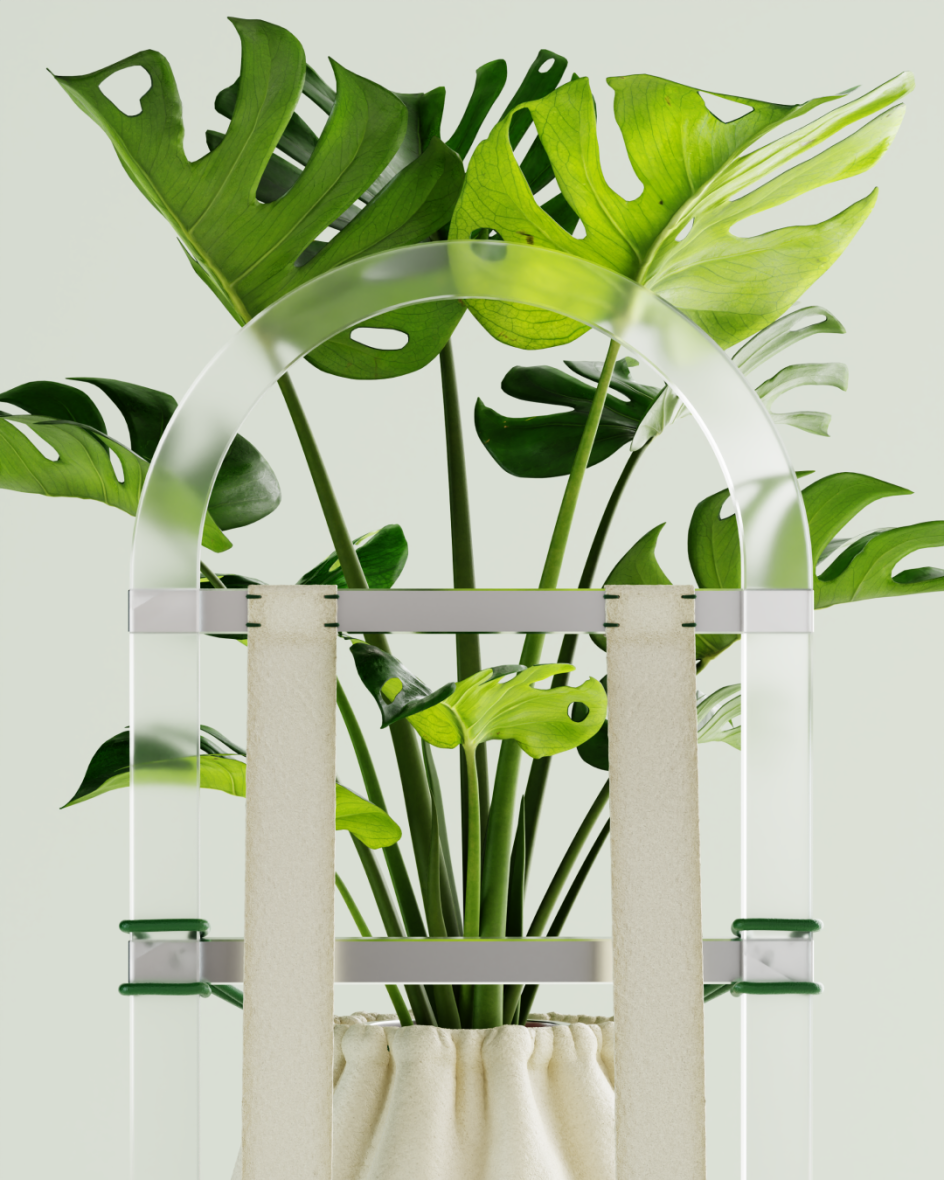
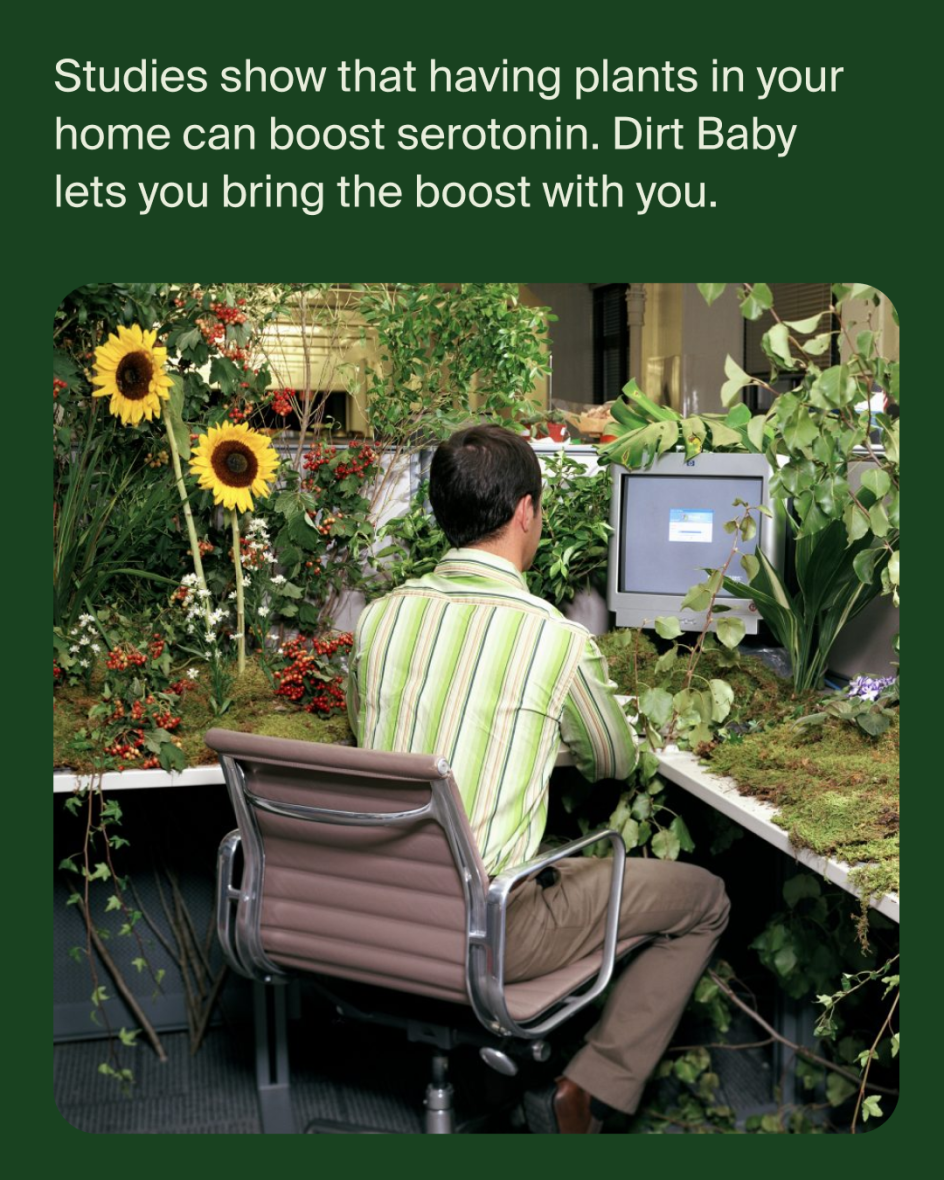
Other brand ideas that didn't make the final cut include a theme park for stoners, redesigning popular items for people with long nails, a dating service for mismatched Airpods, a lifestyle brand for people whose lifestyle is mostly work, a clothing brand for chairs, and a keyboard with no delete or backspace key.
"We normally spend at least a year developing a brand, so working on a shorter timeline was a welcome change of pace," says Michelle. "It also felt good to stretch our sprinting muscles as we condensed a year's methodology into seven weeks of work. And the most interesting part is that we were the final decision-makers on everything. The whole project was just a small team sharing ideas, discussing them, and working towards a consensus. Sharing the responsibility and decision-making was refreshing and inspiring."
How did the project benefit them? "If nothing else, it certainly improved our communication skills," says Michelle. "We started from a place of fun and added seriousness and structure after the fact. And with no outside standard to measure by, we had to discuss each decision to ensure everyone was excited about the outcome. As a result, there were quite a few times when wild ideas had to be translated into more serious language, often via long explanatory journeys and co-creation.
"These meandering conversations also helped us get closer as a team because the ideas were points of passion, not pragmatism. It wasn't always easy to align, but basing our shared vision on a deeper understanding of each other's personal taste felt really generative."
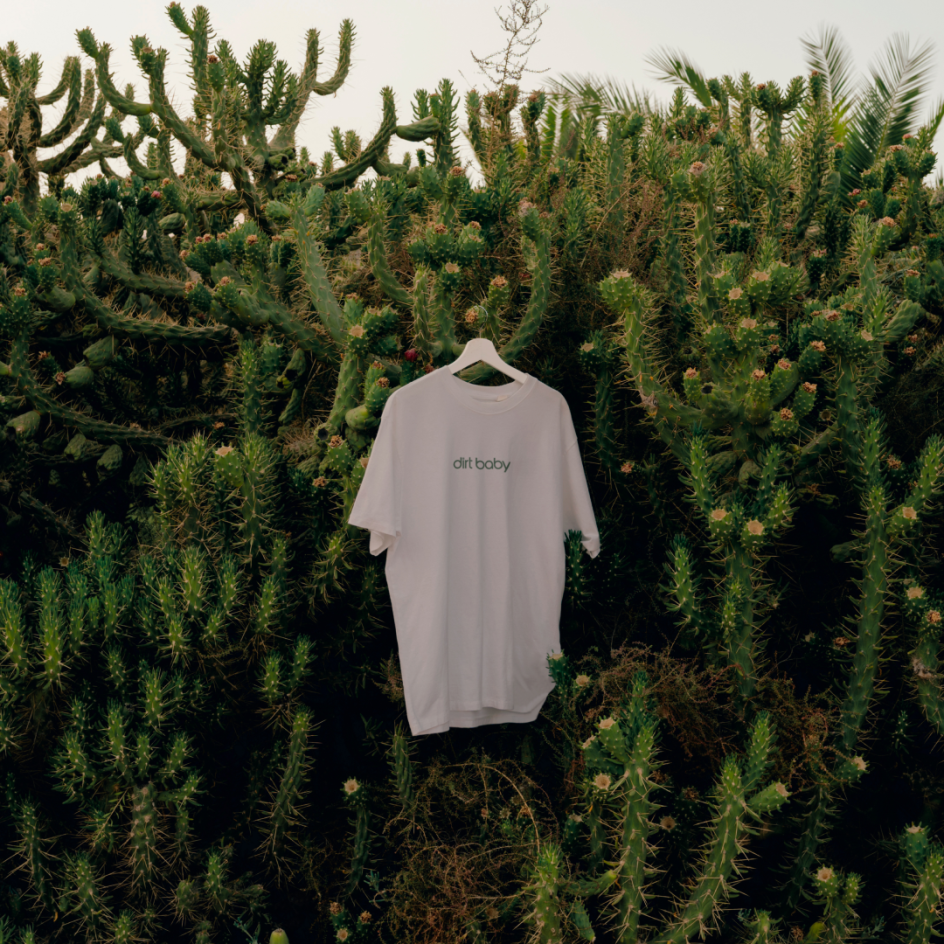
Above all, Michelle believes Dirt Baby was a great reminder of how much they enjoy this type of work. "Doing our jobs just for fun was, in fact, fun! There are a lot of people in the world who cannot say that. We are very grateful that we can."
In another happy coincidence, Practice added a full-time industrial designer to its team shortly before Dirt Baby got going. Which meant everyone enjoyed an in-depth introduction to her work and 3D rendering more broadly. "It was a great way to welcome her to Practice and to give the rest of us a bit of insight into what she brings to the table and how object design could inform our brand work more," explains Michelle.
Other insights from the project include realising the incredible growth opportunity in being able to "break down silos between disciplines". As Michelle elaborates, "A designer can learn a lot by exploring strategy, and a copywriter can discover new approaches by experimenting with design.
She goes on to say, "Having deeper insight into each other's work leads to greater empathy and better team chemistry. On client projects, we have less time to dive deeply into each other's processes. And being brave about the choices we make in a playful context helps us build the confidence we need to take those same chances when the stakes are high. And that confidence is essential to doing great work."
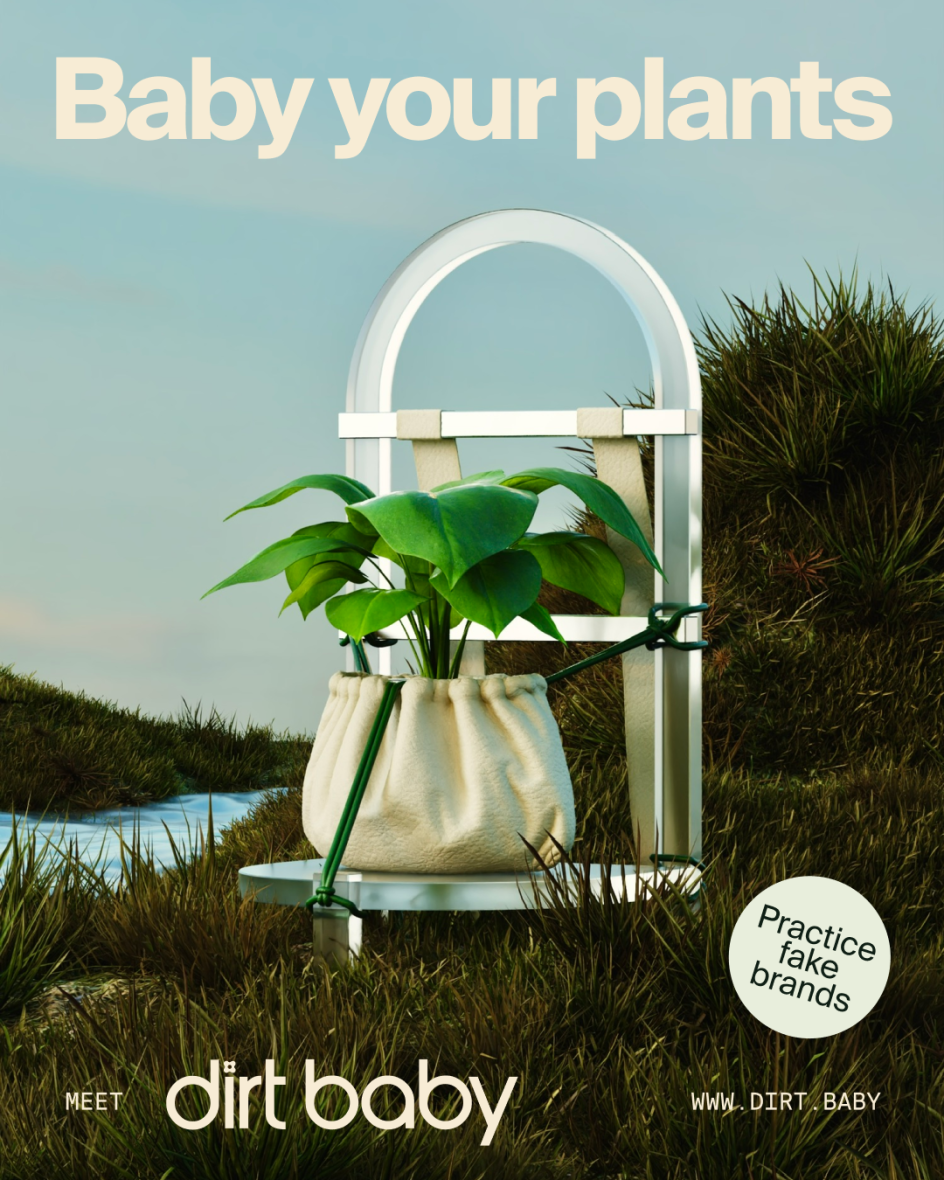
Looking through the project, it's clear Practice had a lot of fun. Michelle also believes it was a wholesome experience. "It was wonderful to work on something the whole team connected to so deeply. By the end, when we were adding lightning bugs to product renders and fine-tuning lines of collaborative poetry, we were nurturing our collective creativity in a really nourishing way.
"Part of what was so nourishing was the chance to take ourselves a bit less seriously, to acknowledge the occasional absurdity of the modern brand landscape. We really enjoyed making up marketing technobabble to describe Dirt Baby's product, poking fun at ourselves, the market, and the skills we've developed while still honouring the craft."
She adds: "What it really shows is that brand development should always incorporate a sense of play. There is a clear strategy behind the Dirt Baby brand because even when we're having fun, we're still thinking critically about what it all means. But that's different from a narrow focus on commercial realities or client needs. When we get too single-minded about feasibility, it's easy to lose track of how inspiring design can be and how much meaning we can pack into a single line of copy. Dirt Baby was the perfect reminder."

 for Creative Boom](https://www.creativeboom.com/upload/articles/06/063686a9a3b095b9b1f0e95df917ed4bd342be1b_732.jpg)



 using <a href="https://www.ohnotype.co/fonts/obviously" target="_blank">Obviously</a> by Oh No Type Co., Art Director, Brand & Creative—Spotify](https://www.creativeboom.com/upload/articles/6e/6ed31eddc26fa563f213fc76d6993dab9231ffe4_732.jpg)
 by Tüpokompanii](https://www.creativeboom.com/upload/articles/58/58684538770fb5b428dc1882f7a732f153500153_732.jpg)









